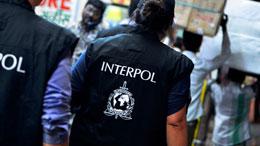Time for Taiwan to join INTERPOL

Commentary
By Mata Press Service
Taiwan police have found that drug-related cross-border organized crimes committed by Chinese, Taiwanese, and ethnic Chinese in Southeast Asia—who share a similar language background—have become more common in recent years.
In August 2018, Taiwan and the Philippines seized 500 kilograms of amphetamines smuggled from Malaysia through a joint maritime operation.
In October of the same year, Taiwan worked with South Korea to seize 112 kilograms of amphetamines smuggled out of Thailand.
Last year Taiwan’s National Police Agency (NPA) conducted a nationwide crackdown on drug crime, investigating 45,489 cases, apprehending 47,779 suspects, and seizing 13,305.71 kilograms of drugs.
As cross-border drug trafficking rings operate in many nations and illicit drug activities are often relocated in response to global market mechanisms, law enforcement agencies face difficulties in carrying out investigations.
As a result, it has become even more imperative for Taiwan police to work with their counterparts in other countries on joint prevention efforts.
The International Criminal Police Organization (INTERPOL), which was established with the purpose of ensuring and promoting the widest possible mutual assistance between all criminal police authorities, serves as the world’s largest platform for police cooperation.
However, political interference by China has led to Taiwan’s exclusion from INTERPOL for 37 years, creating a gap in the international security network and causing concern for law and order in countries across the globe.
Given the rampant growth of terrorism and cross-border crime today, it is essential for police worldwide to work together to create a seamless global system to protect law and order.
Taiwan’s continued exclusion from INTERPOL undermines the global endeavour to fight terrorism, illicit drugs, telecom fraud, cybercrime, and other new forms of transnational crime, thereby diminishing the integrity and effectiveness of the international security network.
For instance, transnational telecom fraud cases investigated by Taiwan police in recent years have often been connected to human trafficking and money laundering.
To deter such crimes, the Taiwan police embarked on a nationwide crackdown on telecom crime syndicates in 2020, investigating 22,647 cases of organized fraud and apprehending 33,631 suspects.
Taiwan police also took proactive measures to prevent illicit financial outflows, including tracking cash flows behind the scenes and blocking money transfers by victims. These measures have achieved substantive results.
Telecom crime networks have now spread across the globe, and the global policing community needs Taiwan’s experience in investigating and preventing criminal activities that cause major financial losses to people worldwide.
Situated in a strategic location between Northeast and Southeast Asia, Taiwan serves as a nexus for the flow of people, goods, and money.
It is the world’s 21st-largest economy and 15th-largest exporter, responsible for over 65 percent of global semiconductor production. In addition, two prominent international airline companies are based in Taiwan.
According to international tourist arrivals data released by the UN World Tourism Organization in 2020, about 11.9 million international visitors travelled to Taiwan in 2019, making it the world’s 36th most popular destination.
Meanwhile, data from Airports Council International showed that Taiwan Taoyuan International Airport served a total of 48.68 million inbound and outbound passengers in 2019, ranking 10th among airports worldwide.
These statistics underscore Taiwan’s importance in international travel and transport. The steady increase of international visitors has placed Taiwan under considerable pressure to ensure border security, maintain law and order, and counter-terrorism.
The country has become an indispensable link in the global security system, especially with regard to preventing money laundering, trafficking, and cybercrime.
To ensure that no gap or breach exists in the network, it is essential that Taiwan be allowed to participate in INTERPOL.
INTERPOL’s refusal to assist Taiwan or allow Taiwan’s participation due to political considerations contravenes its founding principle of neutrality and the spirit of its Constitution, leaving the global security network incomplete.
Taiwan has proven its ability and willingness to contribute to creating a safer world.
Fighting crime does not involve politics, but rather it pertains to the security and well-being of humanity.
It is the common mission and responsibility of the police in all nations.
INTERPOL should uphold the principle that it is an organization that transcends politics, and supports cooperation between Taiwan police and their counterparts worldwide for the joint safeguarding and advancement of global security and justice.









